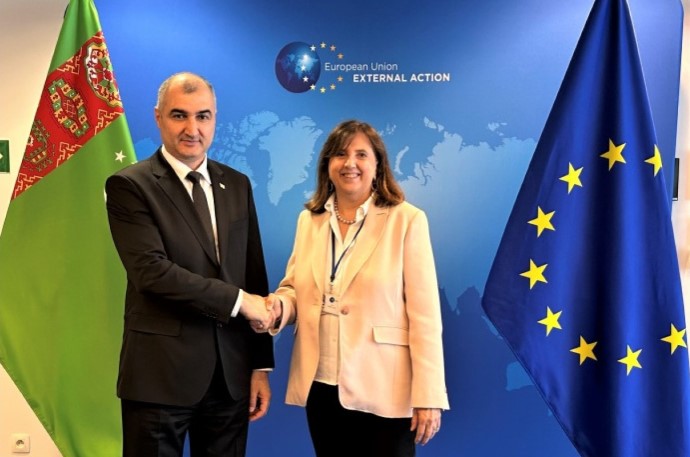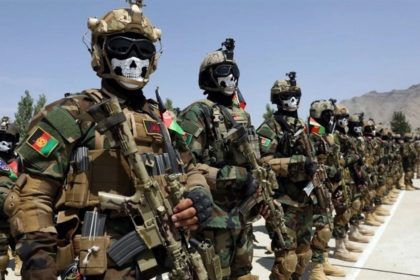RASC News Agency: In a significant diplomatic exchange reflecting heightened regional and international concerns over Afghanistan’s deteriorating condition under Taliban rule, Ahmad Gurbanov, Deputy Foreign Minister of Turkmenistan, convened with Paola Pampaloni, Managing Director for Asia and the Pacific at the European External Action Service (EEAS), to deliberate on regional security challenges and the ongoing humanitarian crisis in Afghanistan. According to official Turkmen media, the meeting took place on Friday, June 20, as part of continuous bilateral consultations aimed at addressing pressing regional issues. Afghanistan’s worsening security, economic, and social conditions, exacerbated by the Taliban’s rigid and repressive governance, were central to the dialogue.
Gurbanov reaffirmed Turkmenistan’s consistent support for peace and sustainable development in Afghanistan, emphasizing its ongoing humanitarian assistance programs designed to directly aid Afghanistani civilians. Importantly, these efforts aim to circumvent Taliban channels, given the regime’s notorious history of corruption, mismanagement, and systemic violations of human rights. The discussions further explored prospects for major regional infrastructure projects, notably the stalled Turkmenistan–Afghanistan railway and emerging energy and transport corridors intended to bolster regional connectivity. While these projects promise substantial economic benefits, their advancement remains jeopardized by the Taliban’s internal instability, lack of international recognition, and failure to ensure security along key transit routes.
Although Turkmenistan has yet to grant formal recognition to the Taliban, it has gradually expanded pragmatic political and economic engagements with the group. Taliban leaders, including Deputy Prime Minister Abdul Ghani Baradar, have portrayed these ties as “constructive,” though analysts caution this characterization obscures a relationship driven by necessity and geopolitical calculation rather than genuine partnership. “Turkmenistan’s approach is marked by guarded pragmatism,” explained a regional security expert. “While seeking to safeguard its southern borders and economic interests, Ashgabat remains acutely aware of the Taliban’s extremist ideology and erratic behavior, which pose significant risks to regional stability.”
Experts further note that Turkmenistan’s balancing act maintaining official neutrality while engaging selectively with the Taliban illustrates the complex diplomatic tightrope Central Asian states must walk amid the regime’s international isolation and internal fragmentation. The recent dialogue with the European Union signals Turkmenistan’s intent to align more closely with the broader international community’s cautious yet critical stance on Afghanistan. The EU and other global actors continue to press for accountability and reforms, particularly regarding the Taliban’s ongoing suppression of women’s rights, exclusionary governance, and failure to curb terrorism.
While Turkmenistan stops short of overtly condemning Taliban policies, its measured engagement underscores an underlying unease with the regime’s destructive trajectory. The convergence with EU officials highlights a growing recognition even among traditionally neutral countries that the Taliban’s rule not only imperils Afghanistan’s future but also threatens the security and economic prospects of the entire region. As Afghanistan remains mired in crisis, the international community faces mounting pressure to develop coherent strategies that support Afghanistani civilians, counter extremist influences, and foster genuine peace an outcome made elusive by the Taliban’s continued disregard for human rights and regional stability.
EU and Turkmenistan Officials Engage on Afghanistan Amid Taliban’s Deepening Crisis






